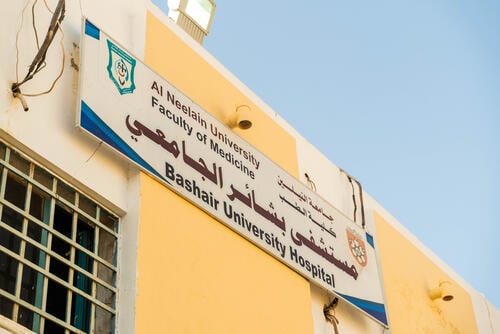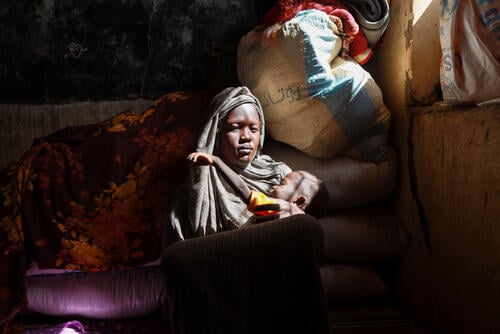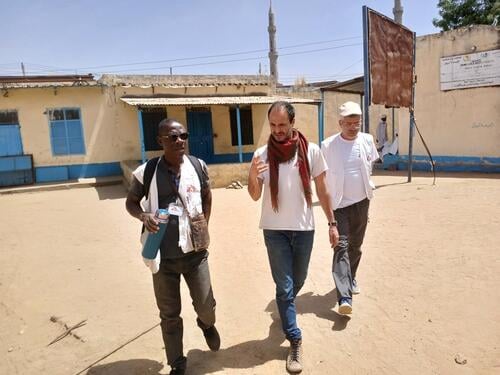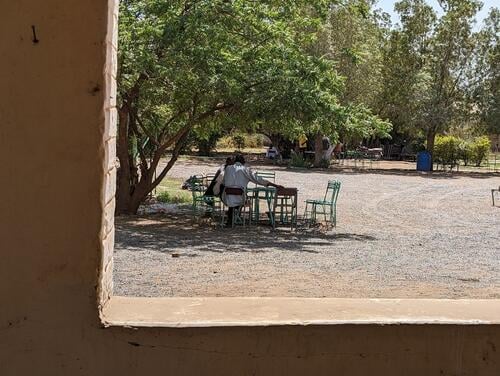- MSF has been led to suspend our support to life-saving surgical activities at Bashair Teaching Hospital in south Khartoum, Sudan.
- The suspension comes after military authorities have blocked the transport of surgical materials from Wad Madani to south Khartoum for over a month.
- MSF continues discussions with the authorities to get these supply blockages removed.
Khartoum/Brussels - Médecins Sans Frontières (MSF) announces the suspension of support to life-saving surgical activities at Bashair Teaching Hospital in south Khartoum, Sudan, including trauma surgery and caesarean sections, after military authorities have blocked the transport of surgical materials from Wad Madani to south Khartoum for over a month.
“It is devastating to have to stop supporting life-saving surgical care at Bashair Hospital,” says Dr Shazeer Majeed, MSF surgical adviser. “Since mid-May, the hospital’s emergency room has received nearly 5,000 patients and MSF’s surgical team has performed more than 3,000 surgical procedures.”
“The needs are huge,” says Dr Majeed. “Blocking the medication and materials needed to perform surgery deprives people of the healthcare they so desperately need.”
It is devastating to have to stop supporting life-saving surgical care at Bashair Hospital.Dr Shazeer Majeed, MSF surgical adviser
MSF started working alongside Ministry of Health staff and volunteers in Bashair Teaching Hospital in mid-May. Since 8 September, military authorities have refused permission for MSF to bring new surgical supplies from our warehouses in Wad Madani to hospitals in south Khartoum. Our surgical supplies in Bashair hospital have now run out, making it impossible to continue surgical activities.
“After weeks of discussions, on Sunday 1 October, we were informed that the military authorities in Wad Madani will no longer allow the transport of any surgical supplies, including for c-sections, to hospitals in south Khartoum,” says Michiel Hofman, operations coordinator for Sudan.
“Despite repeated engagements with the health authorities since, these critical supplies remain blocked and stocks in the hospital are now depleted. We have no choice but to suspend our support to surgical activities at Bashair Teaching Hospital and temporarily withdraw our surgical team,” says Hofman. “We cannot ask our medical teams to stay when they can no longer provide life-saving care as they are medically obliged to do.”
Critical supplies remain blocked and stocks in the hospital are now depleted. We have no choice but to suspend our support to surgical activities at Bashair Teaching Hospital.Michiel Hofman, operations coordinator for Sudan
MSF will continue to support maternal, emergency and outpatient care at Bashair hospital. For now, MSF continues to provide and support medical care at three other major hospitals in Khartoum and Omdurman, but some of these hospitals are also running out of supplies. Surgical supplies at the Turkish Hospital in south Khartoum, also affected by the blockage, are likely to run out within two weeks.
MSF continues to discuss with all authorities concerned to get these supply blockages removed. We are ready to resume our surgical activities when supply lines are restored.
MSF has worked in Sudan since 1979. We currently work in 10 states in Sudan, including Khartoum city and state, Al-Jazeera, White Nile, Blue Nile, River Nile, Al Gedaref, West Darfur, North Darfur, Central Darfur and South Darfur state.
MSF teams in Sudan are treating people injured in the fighting, including blast injuries and gunshot wounds, treating communicable and non-communicable diseases, providing maternal and paediatric care, running mobile clinics in displaced people’s gathering locations, providing water and sanitation support, and supporting healthcare facilities through donations, incentives to Ministry of Health staff, and training and logistical support. MSF is also continuing some of the activities that were in place before the start of the conflict.






